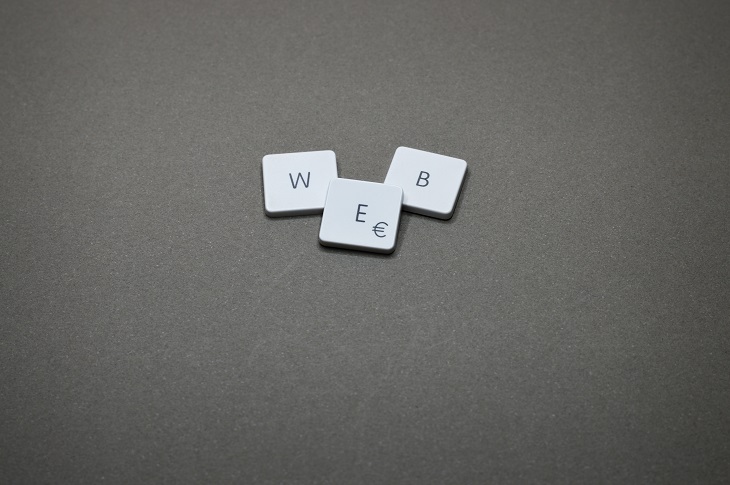Predicting The Future: What Will 2023 Hold For Web3?

In 2022, we saw NFT-driven tokenized memberships, AI tools, and metaverse partnership announcements become a thing. If you don’t look closely enough, they all seem like standalone concepts under the umbrella of technology. But if you take another look, you’ll see that they are all building blocks toward a better-evolved internet known as web3. In the wake of all these developments in 2022, we’re now wondering: what will 2023 hold for web3, and what trends should you look out for?
What is web3?
web3.0 was originally referred to as the Semantic Web by Tim Berners-Lee, a programmer who developed the World Wide Web (WWW). Berners-Lee imagined an intelligent, independent, and open Internet that used AI and machine learning to act as a “global brain” and interpret content conceptually and contextually.
The entire goal of web3 is to create a version of the internet with more personalized user experiences, better security, and increased self-ownership and control over your data. Imagine the internet becoming a lot smarter and allowing you to perform tasks more efficiently through text, voice, or other media. A couple of years ago, it was a lot harder to achieve this version – but recent strides within the artificial intelligence space have made it possible to build web 3.0.

5 Web3 Trends to Watch in 2023
So, what will the future hold for web3? Here are a few predictions on the future of web3 that could happen within the next year…
1. Increased Adoption of Decentralized Technologies
One main feature of web3 is the use of decentralized technology, like blockchain and peer-to-peer networks, to store, transform, and transmit data. Between 2020 and 2022, it wasn’t uncommon to see a headline about a new company embracing decentralization almost every other week. Seeing as the arguments for decentralized technology, such as transparency, security, and content ownership, are still valid, this wide-scale adoption will most likely continue, creating more secure and transparent systems.
2. Advancements in Artificial Intelligence and Machine Learning:
Artificial intelligence (AI) tools seem to be replacing a ton of basic web experiences. For example, people can type prompts into AI engines like ChatGPT and get intuitive and precise results instead of using traditional search engines and sifting through a results page. Tools like ChatGPT are open-source and accessible to anyone. As they become a lot more popular, the question of decentralization presents itself. How much better are these tools than what currently exists, especially concerning content ownership, access, and privacy?
Artificial intelligence plays a big role in the future of web3 because AI machines are trained with existing data and programmed to learn as they consume more data. But the right technology has to be applied to this data so that the machine can understand and interpret it in a more sophisticated way. In 2023, we could see more advanced AI and machine learning technologies being used in a variety of applications, including personal assistants, recommendation engines, and more.

3. More Personalized and Intuitive Web Experiences
Here’s a (probably familiar) scenario: you open your favorite social media app and see a bunch of suggested accounts to follow. You also see a bunch of recommended posts that are supposed to be related to your interests. But the problem is that none of these recommendations actually capture your interests properly.
The future of web3 could bring a more personalized user experience across the internet instead of just within individual apps. For example, machine learning algorithms might be able to understand users’ preferences and tailor their entire online experiences accordingly. Natural language processing (NLP) technologies could make it easier to communicate with machines.
4. Improved Data Security and Protection Against Piracy
Blockchain technology can provide enhanced data security by making it a lot more difficult for hackers to access and manipulate data. As more companies face cyber threats and data leaks, they could look towards decentralized security approaches to reduce the risk of breaches.
Another application of web3 for data security, especially for content protection, is the creation of decentralized networks to improve the security of film and TV content. This could significantly reduce the risk of piracy. In 2023, there could be more studios and networks turning to these technologies to protect their intellectual property and prevent the illegal distribution of their content. Like other web3.0 predictions on this list, this may not be fully developed by the end of the year, but it’s definitely already in process.
5. Increased Use of Virtual and Augmented Reality:
Virtual and augmented reality (VR/AR) could be used to create more immersive and interactive experiences for film and TV viewers. For example, Meta’s Horizon World is a virtual environment where people can interact with other users and objects. This could push the boundaries of how we define social media. Soon, we could see more studios and networks experimenting with these technologies to enhance the viewing experience and create new opportunities for audience engagement.
6. A Greener Web
Making intentional efforts for a healthier planet has become increasingly necessary. But with climate change becoming an ever more obvious issue, there has been a bigger shift towards energy saving and other green initiatives – even in the future of web3. Web3 technologies have been notorious for their energy consumption – for example, Bitcoin, the largest and most popular cryptocurrency, consumed an average of 110 terawatt hours in 2021.
Recently, there have been focused efforts to lower energy consumption without sacrificing the benefits of blockchain and related Web3 technologies. Most significantly, the Ethereum network recently switched from the proof-of-work method to the proof-of-stake algorithm, leading to a 98% reduction in the total amount of energy needed on the network.
The World Economic Forum (WEF) has spoken about the need for these initiatives, and the importance of considering energy consumption and its impact on the planet when building web3 technologies. It won’t be surprising to see several new approaches toward a greener web experience in 2023.
Overall, this could be an exciting year for the development of web3 and decentralized technologies! As these technologies advance and become more widely adopted, we can expect to see a more intelligent, personalized, and secure internet that can better meet the needs of both humans and machines.
Featured image by Charles Deluvio via Unsplash
